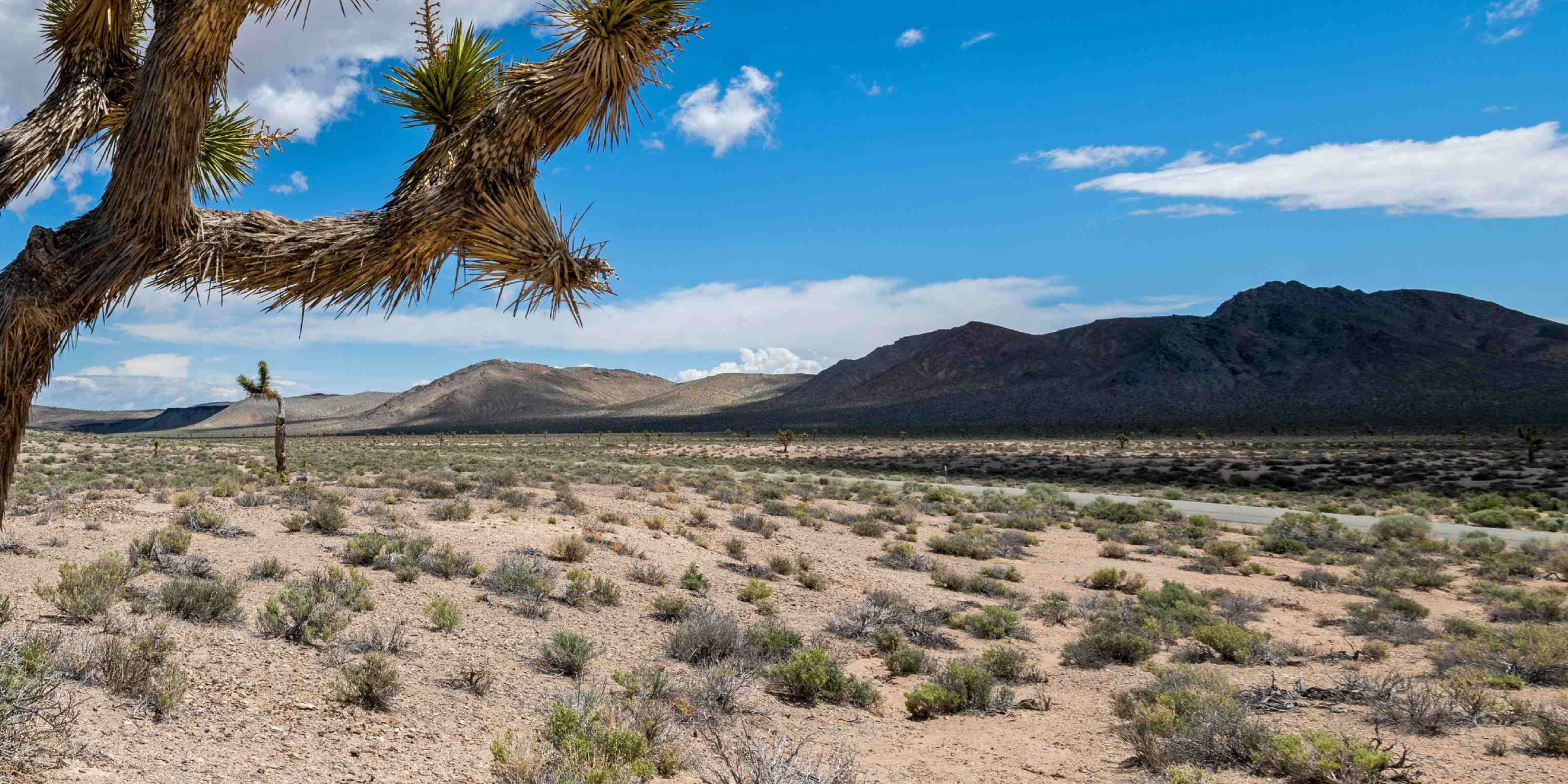
Seven States Under Extreme Heat Warning Revealed – Details
Several states in the U.S. are under heat alerts as temperatures climb. Weather officials share simple steps to help the public stay safe and comfortable.
With temperatures forecast to soar well into the triple digits, the National Weather Service (NWS) is urging the public to take precautions against potentially life-threatening conditions.
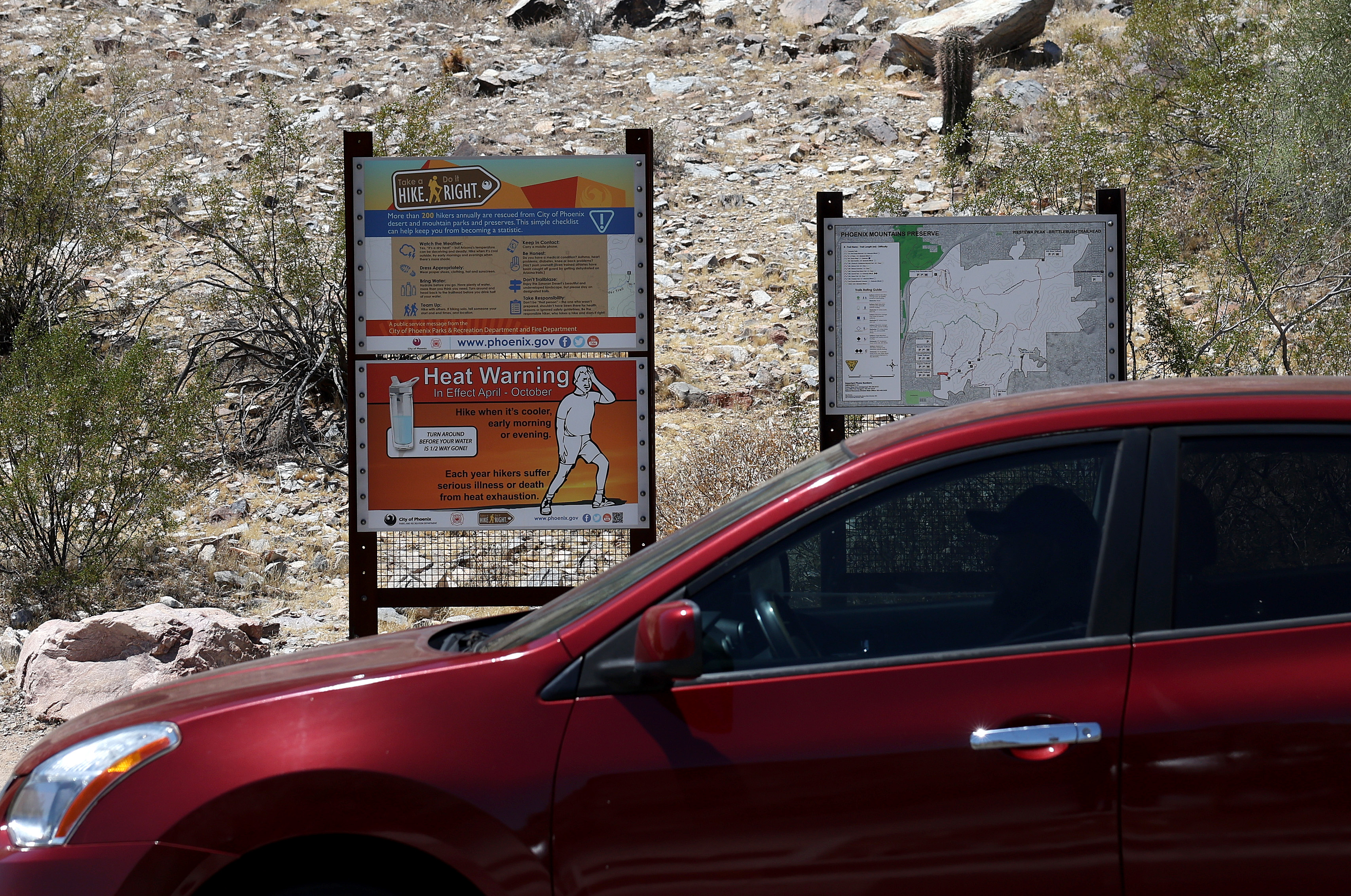
Warning signs posted at a Phoenix trailhead caution hikers about extreme heat risks Source: Getty Images
In response, Extreme Heat Warnings have been issued across seven states: Arizona, Iowa, Minnesota, Nebraska, South Dakota, Nevada, and Wisconsin.

An incoming flight over Phoenix, Arizona, during a record-setting heat wave across the Southwest on June 5, 2024 | Source: Getty Images
In the southern and central parts of Arizona, affected areas include the Tucson metro area, Gila River Valley, Upper San Pedro River Valley, Upper Santa Cruz River Valley, Altar Valley, and western Pima County.
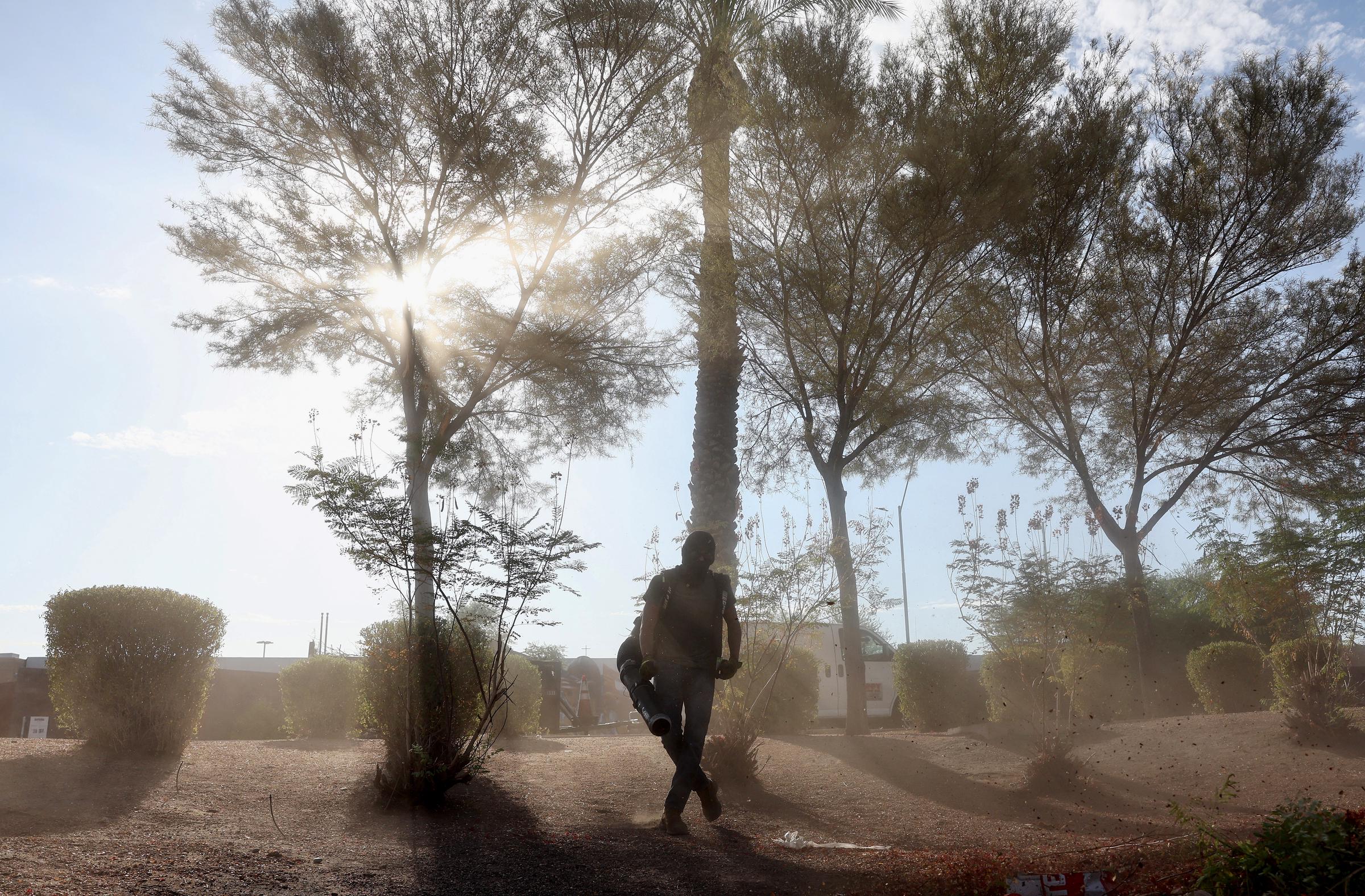
A worker uses a leaf blower in Phoenix, Arizona, during a record-setting heatwave on July 24, 2023 | Source: Getty Images
Cities listed in the alerts include Tucson, Green Valley, Vail, Marana, Nogales, Douglas, Clifton, Safford, Benson, Willcox, Mammoth, and Oracle. In central Arizona, the warning also covers Phoenix, Goodyear, Avondale, Tempe, Mesa, Chandler, Gilbert, Glendale, Surprise, Scottsdale, and surrounding cities.
In the Grand Canyon area, lower elevations below 4,000 feet are also included, particularly Phantom Ranch, Supai, Grand Canyon Village, and the North Rim, with temperatures expected to reach between 104°F and 113°F.
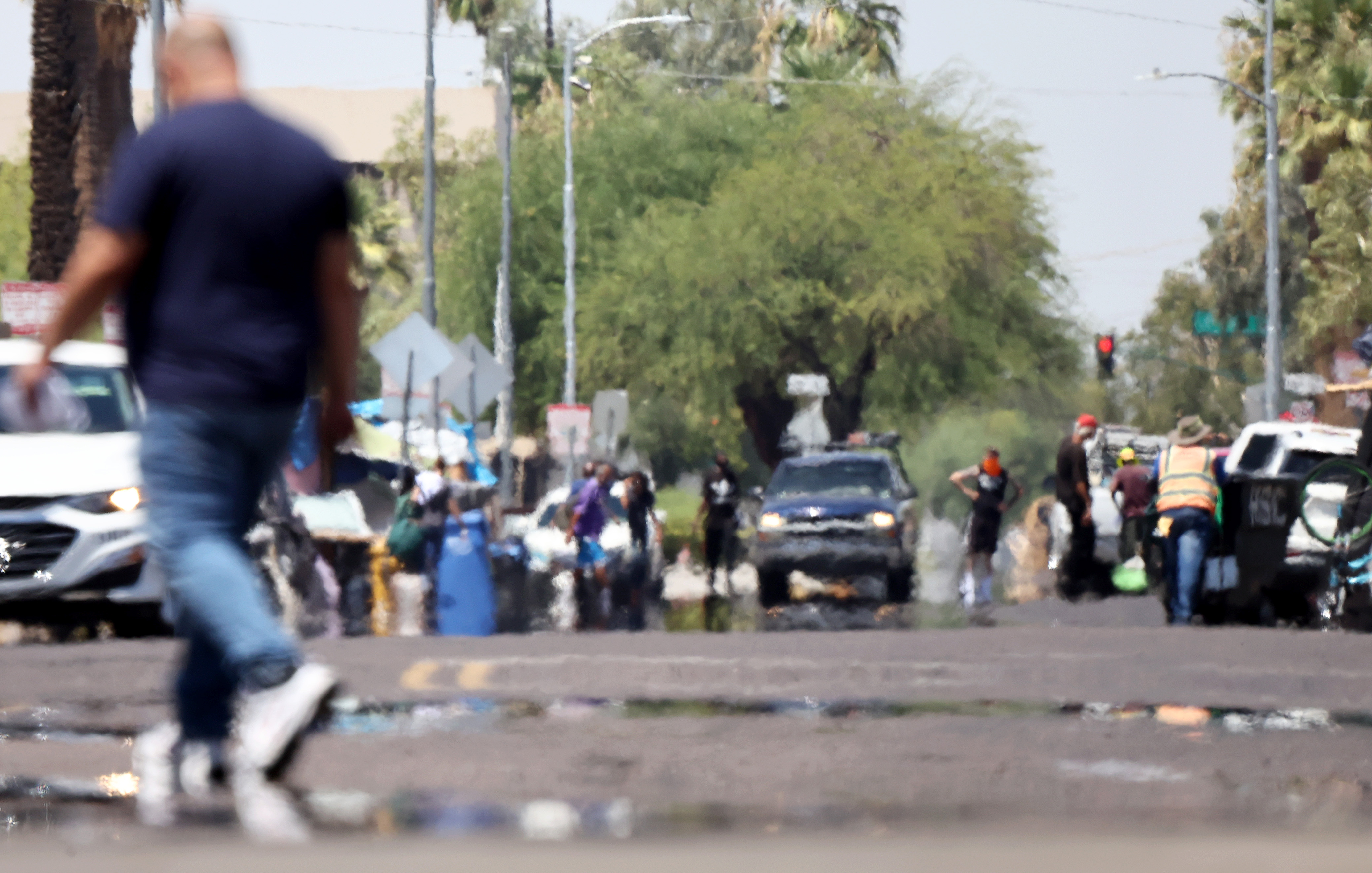
Heat shimmer distorts the view along a street in Phoenix, Arizona, during dangerously high temperatures on July 25, 2023 | Source: Getty Images
In Nevada, the Las Vegas Valley, Lake Mead National Recreation Area, Overton, Indian Springs, and Pahrump are all under warning. Additional cities listed include Las Vegas, North Las Vegas, Henderson, Boulder City, and Laughlin.
In the adjacent parts of California, the warning extends to Death Valley National Park, the Eastern Mojave Desert, and western San Bernardino County. Specific cities include Barstow, Daggett, Needles, Fort Irwin, and the Mojave Preserve area.
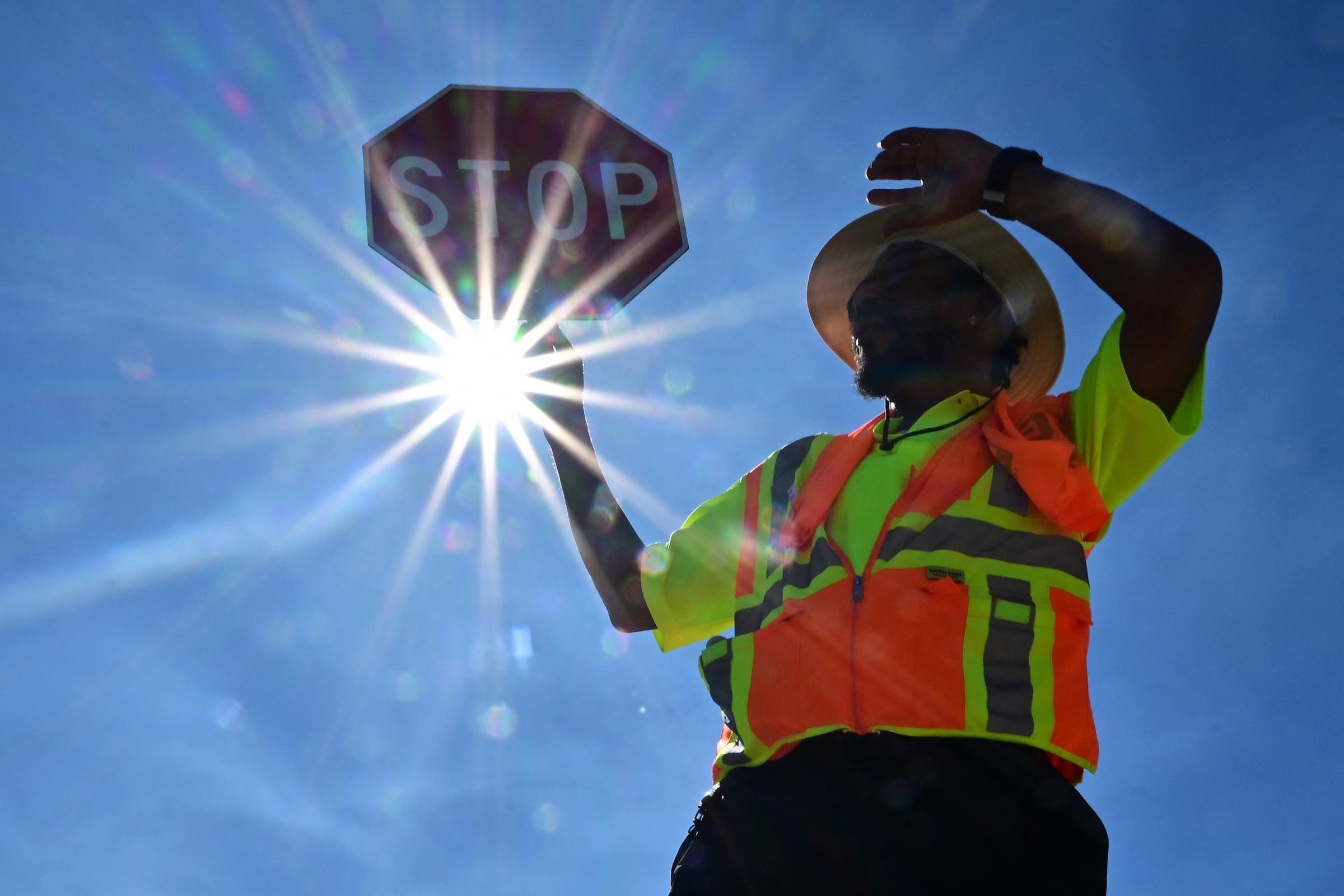
A traffic warden shields his face from the intense sun while working a shift in Las Vegas, Nevada, during a heatwave on July 12, 2023 | Source: Getty Images
Nebraska has one of the widest coverage areas under warning. Cities include Omaha, Lincoln, Grand Island, Hastings, Beatrice, Columbus, Fremont, Kearney, York, Norfolk, McCook, Lexington, Holdrege, Fairbury, Geneva, Aurora, and North Platte.
Additional smaller towns listed include Papillion, Falls City, Albion, O’Neill, Fullerton, Ord, and Broken Bow. Counties such as Boyd, Holt, Garfield, Wheeler, and others across eastern, central, south-central, and north-central Nebraska are included.
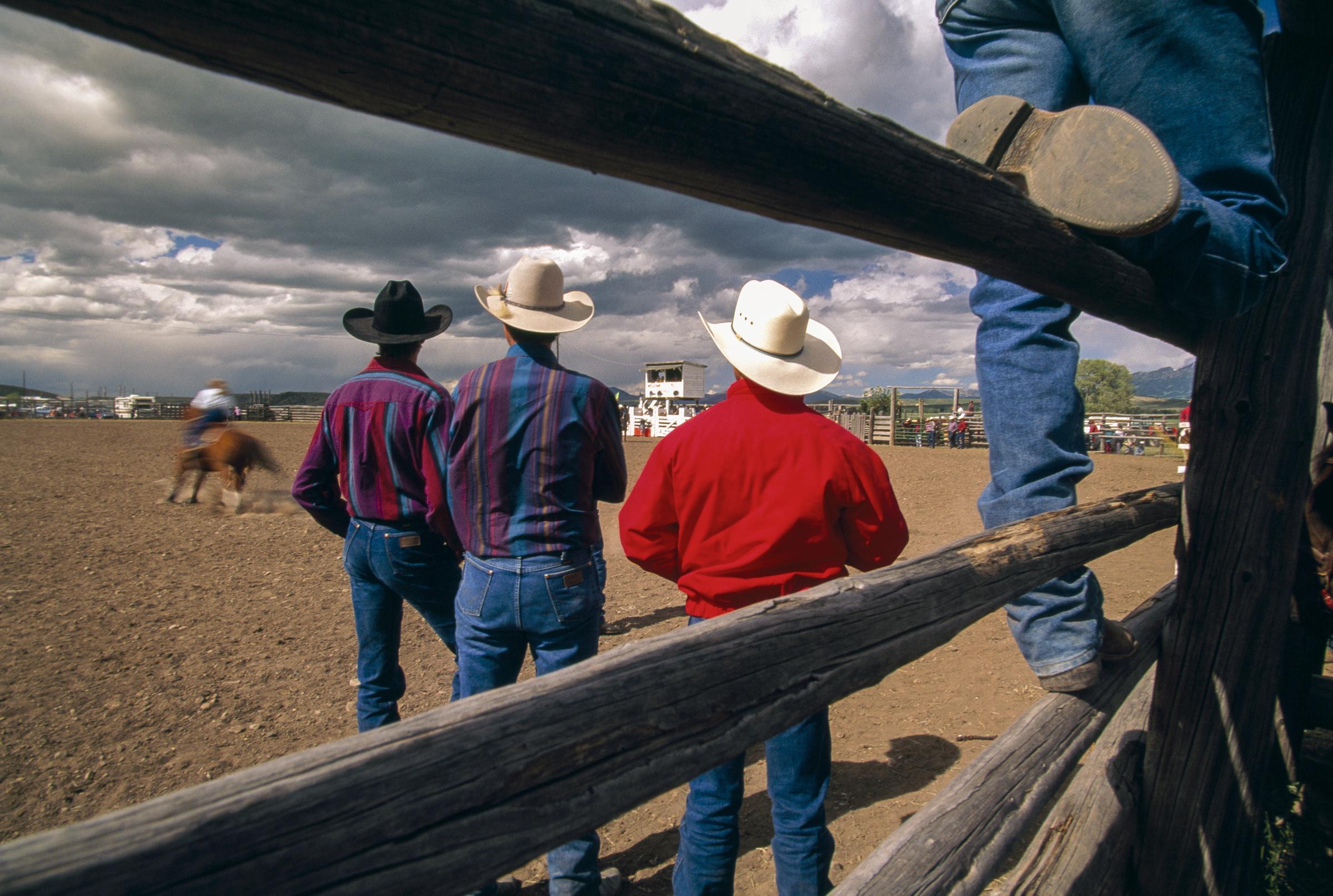
Cowboys watch a rodeo under sunny skies in Mullen, Nebraska, on July 7, 2023 | Source: Getty Images
In Iowa, western and central counties are affected. Cities listed include Des Moines, Sioux City, Fort Dodge, Carroll, Council Bluffs, Rockwell City, Emmetsburg, Estherville, Lake View, Denison, Atlantic, and Guthrie Center.
The warnings cite a combination of high temperatures and humidity that will push heat index values up to 110°F in some locations.
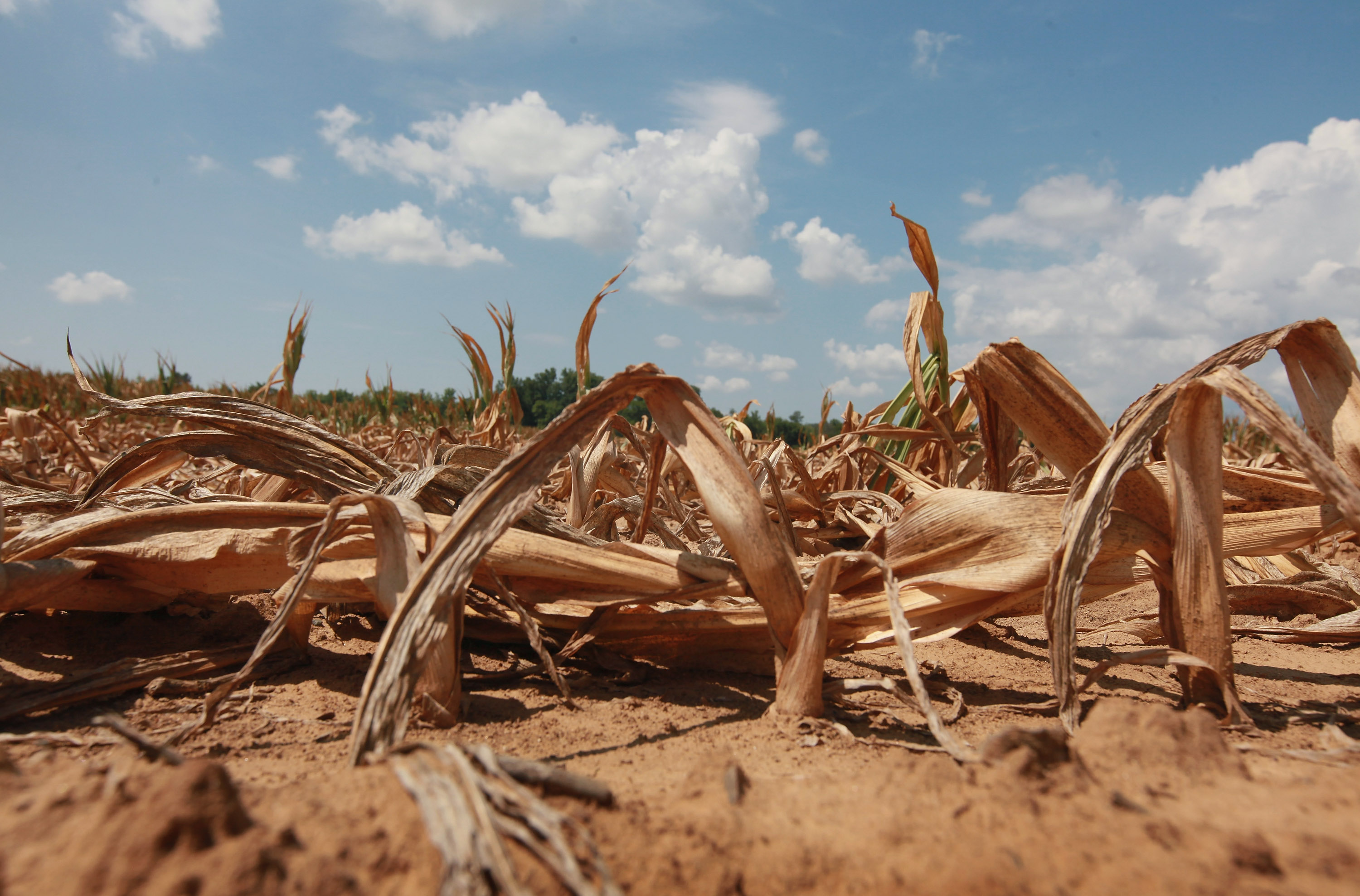
Dried corn plants lie in a field during a heat-driven drought in Shawneetown, Illinois, on July 16, 2012 | Source: Getty Images
South Dakota is under the same warning in the southeast portion of the state. Cities specifically named include Sioux Falls, Yankton, Vermillion, Brookings, Madison, Mitchell, and Parker.
Counties affected include Lincoln, Turner, Minnehaha, Union, Clay, and surrounding areas. Heat index values in these locations are forecast to exceed 105°F, with very warm nighttime lows increasing health risks.
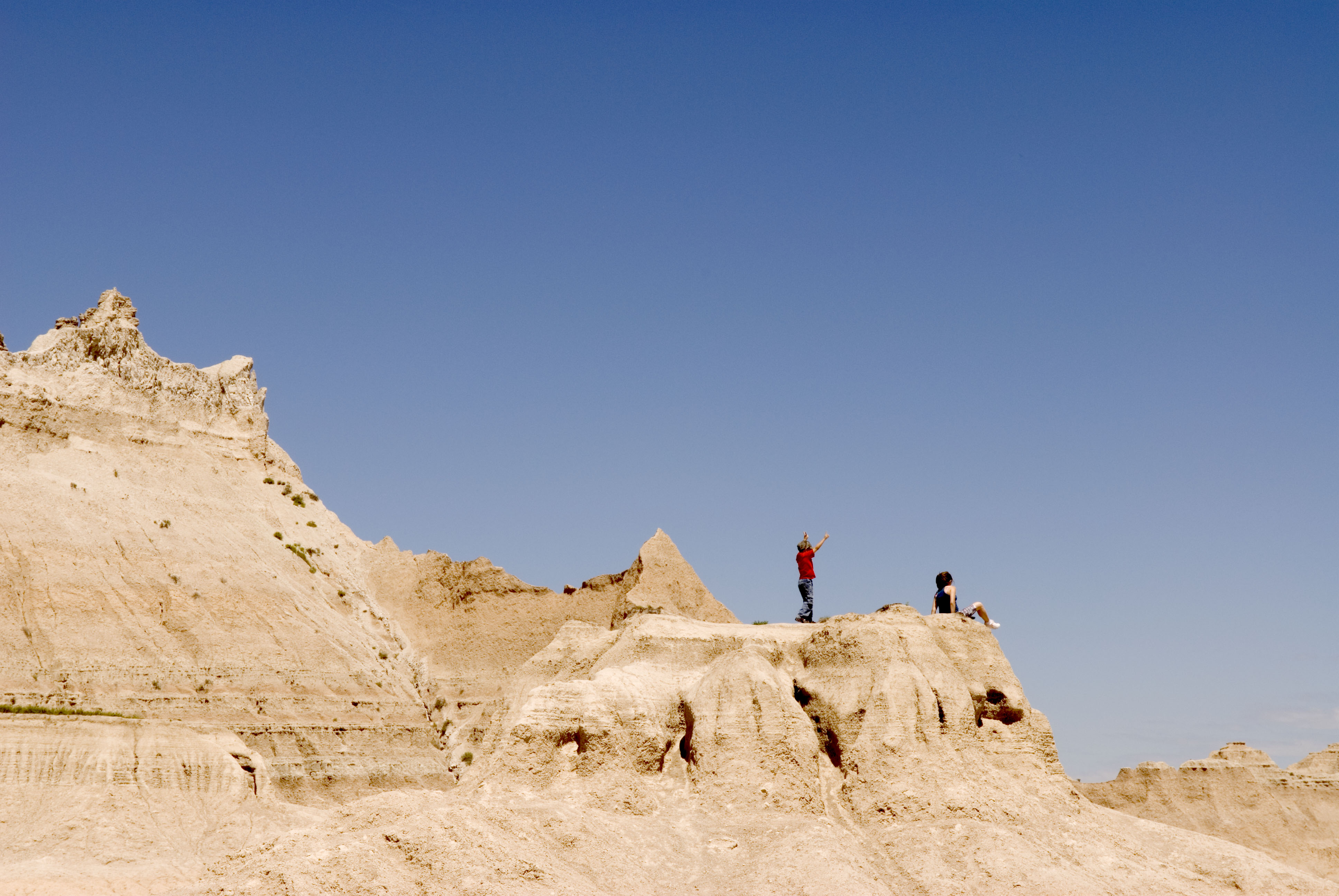
Children stand atop a sun-scorched hill in Badlands National Park, South Dakota, on August 28, 2005 | Source: Getty Images
Minnesota is under multiple warnings across central, south-central, southeast, and west-central regions. Cities under alert include Minneapolis, St. Paul, St. Cloud, Mankato, Willmar, Montevideo, Hutchinson, New Ulm, Red Wing, Fairmont, Owatonna, Faribault, Albert Lea, Shakopee, Blaine, Eden Prairie, Chaska, Burnsville, Maple Grove, and Sauk Rapids.
Counties listed include Renville, Blue Earth, Brown, Nicollet, Le Sueur, Kandiyohi, Meeker, McLeod, Steele, Sibley, and Waseca. In Wisconsin, affected areas include Hudson, River Falls, and counties like Pierce, St. Croix, and Polk.
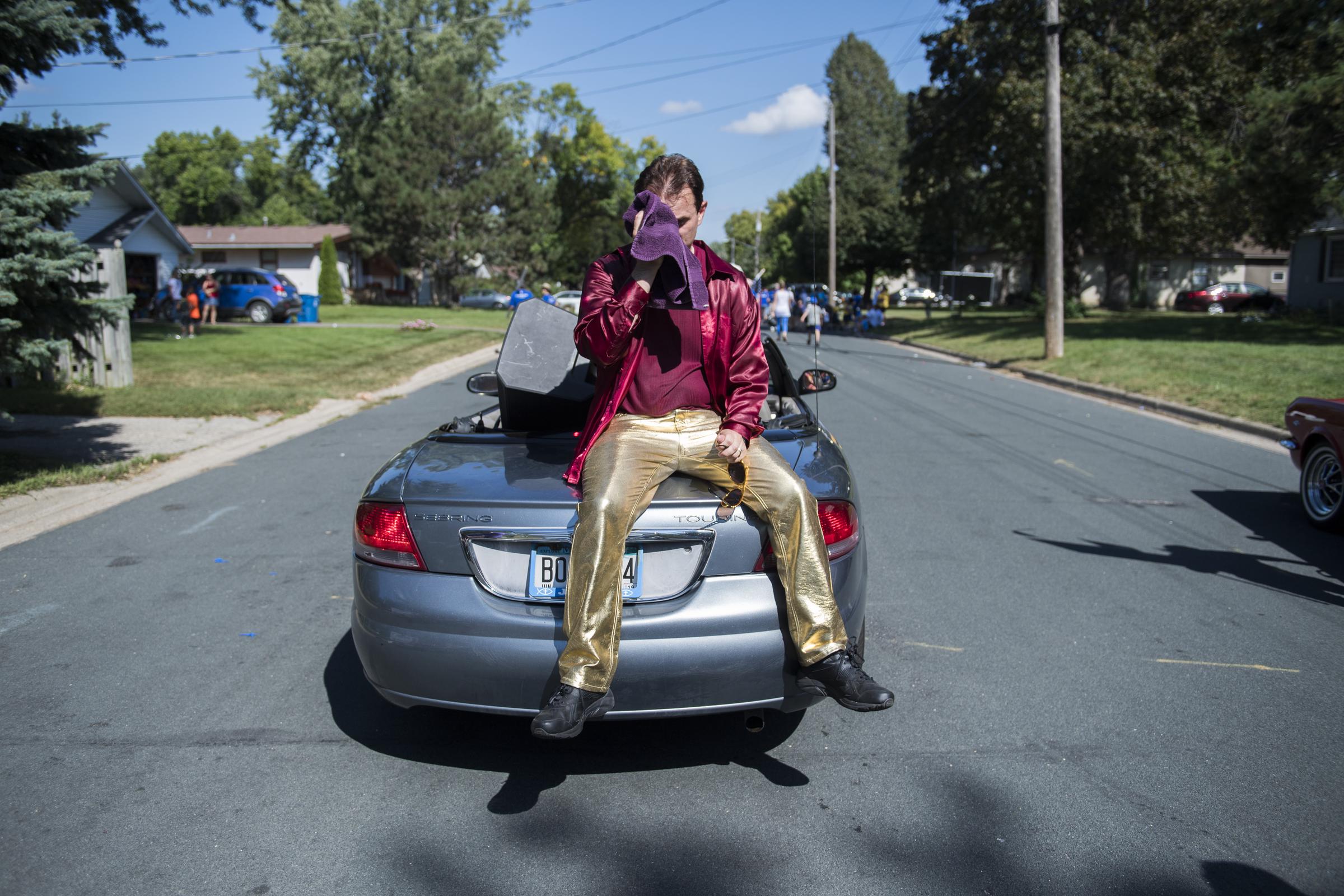
A man wipes away sweat while riding on a convertible during the Heritage Days parade in Bloomington, Minnesota, on September 15, 2018 | Source: Getty Images
Areas Under Extreme Heat Watch
In North Dakota, areas near the Minnesota border will be under an Extreme Heat Watch Sunday afternoon through evening. The alert includes cities such as Bemidji, Bagley, Mahnomen, Detroit Lakes, Red Lake, Park Rapids, and Baudette.
Counties named in the alert are Beltrami, Hubbard, Lake of the Woods, Mahnomen, Becker, and Clearwater. Forecasts indicate heat index values could reach close to 100°F, raising health concerns for outdoor exposure.
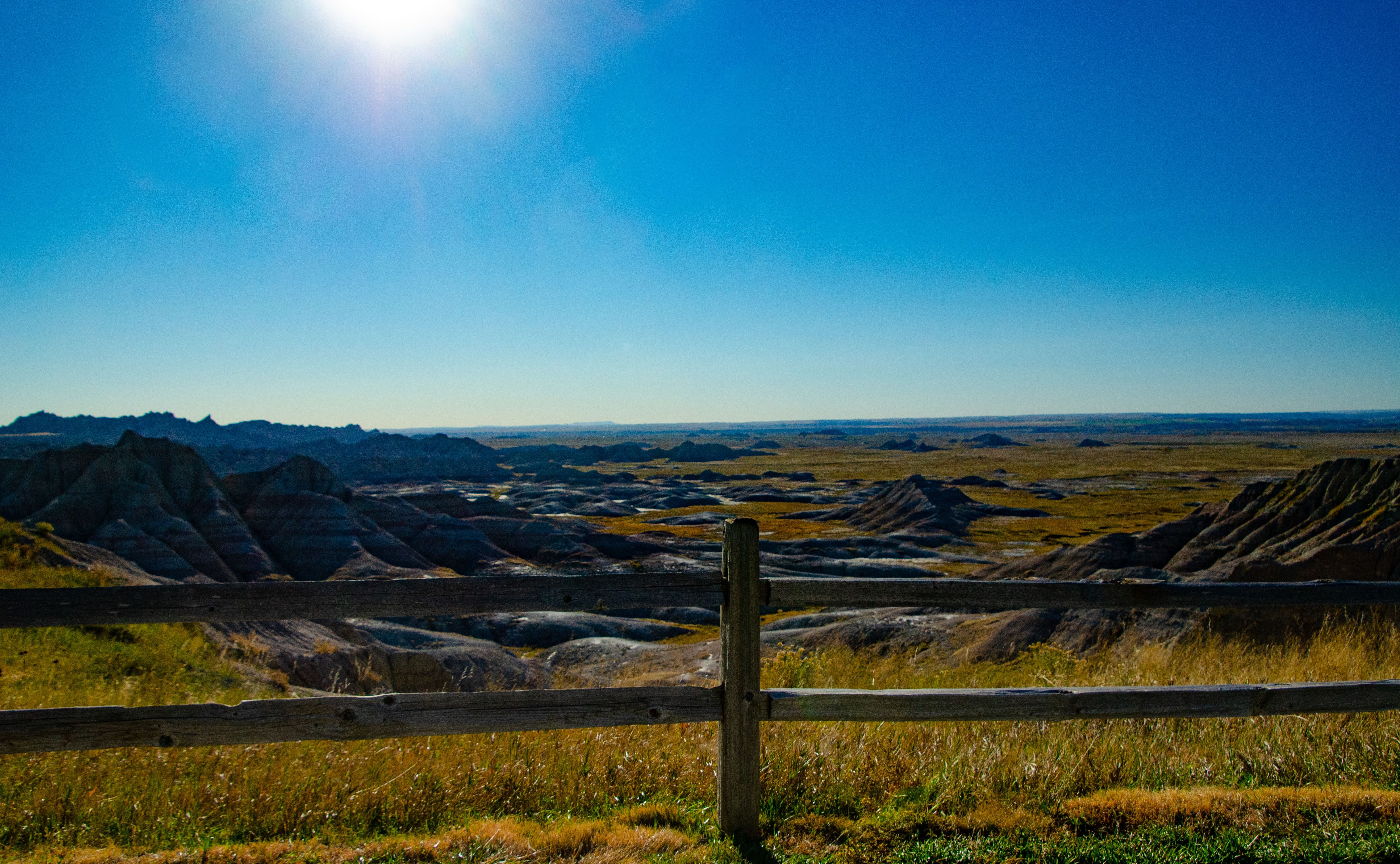
Sun shines over the rugged landscape of Badlands National Park in Wall, South Dakota, on October 21, 2023 | Source: Getty Images
Across Iowa and northwest Illinois, a separate watch begins Saturday afternoon and runs through Sunday evening. Affected communities include Davenport, Bettendorf, Iowa City, Cedar Rapids, Burlington, Mount Pleasant, Muscatine, Fairfield, Maquoketa, Clinton, Tipton, Dubuque, and Moline.
In Iowa, the alert spans counties such as Johnson, Scott, Washington, Linn, Muscatine, Dubuque, Keokuk, Des Moines, Henry, Louisa, Jefferson, and Lee. Illinois counties include Rock Island and Mercer. Heat index readings are forecast to exceed 105°F, and warm nighttime temperatures in the upper 70s may prevent the body from cooling down adequately.
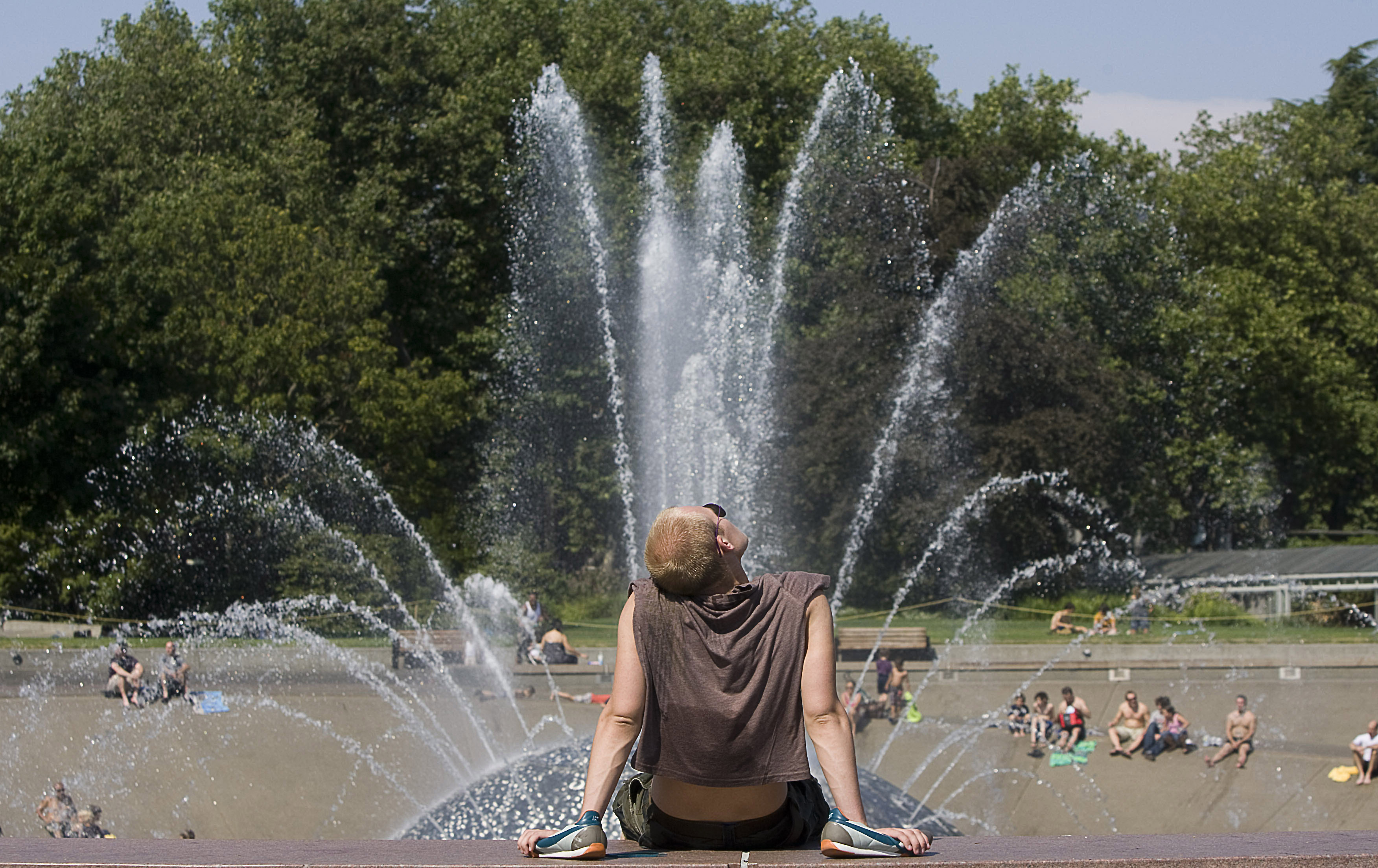
A man cools off at Seattle Center's International Fountain as temperatures soar during a historic heatwave on July 29, 2009 | Source: Getty Images
Southern parts of Illinois and eastern Missouri are also facing a prolonged heat watch that begins Saturday and continues through Tuesday evening. This alert targets the St. Louis metro area, including cities like St. Louis, St. Charles, Alton, Cahokia, Belleville, and Edwardsville.
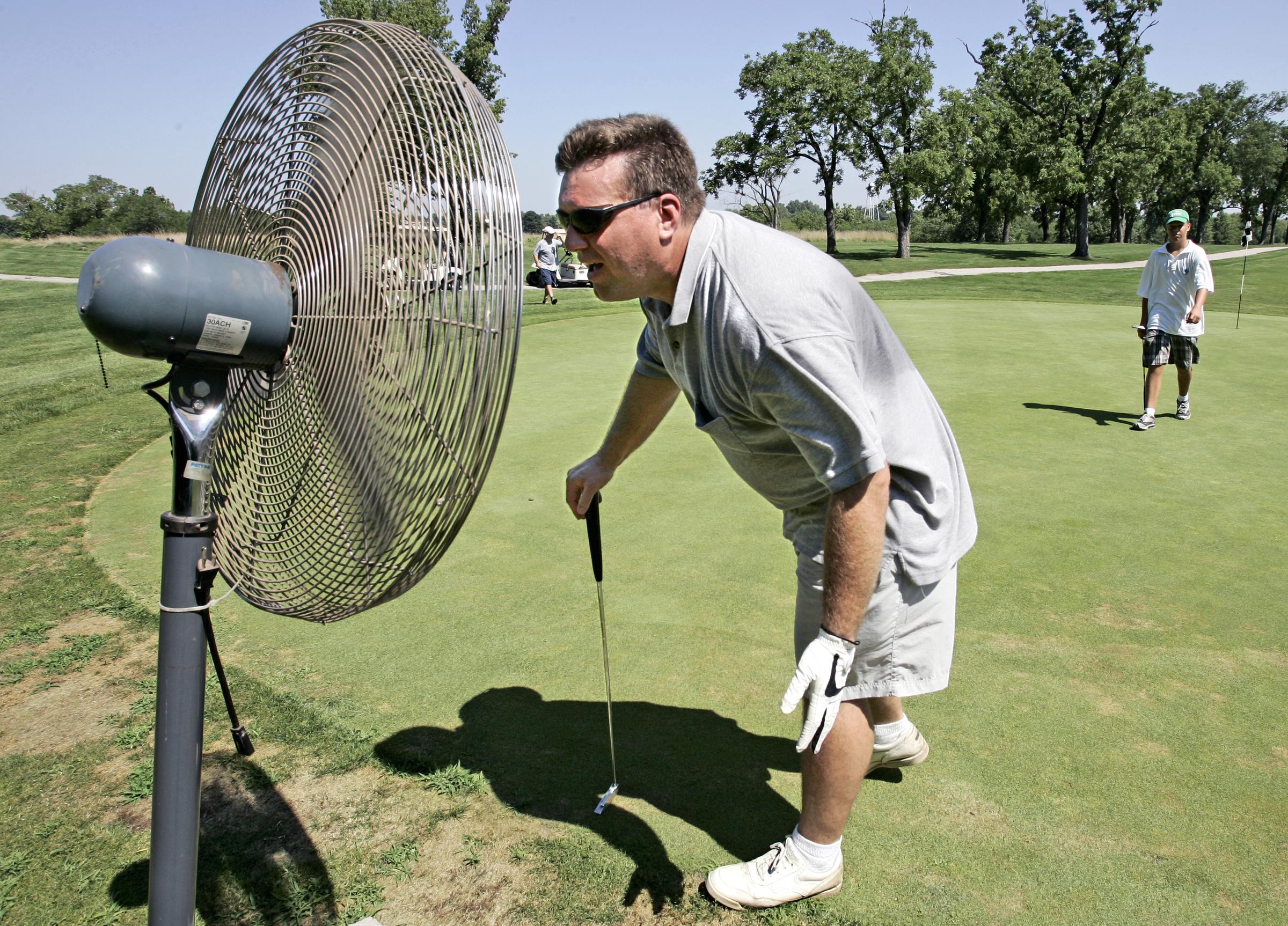
A golfer cools off in front of a fan on a hot day at Minor Park Golf Course in Kansas City, Missouri, on July 17, 2006 | Source: Getty Images
Missouri counties under watch are St. Louis City, St. Louis County, Jefferson, and St. Charles. On the Illinois side, the affected counties are Jersey, Madison, Monroe, and St. Clair. Heat index values in this region could peak at 108°F, with the extended duration of the event posing an elevated risk of heat-related illness.
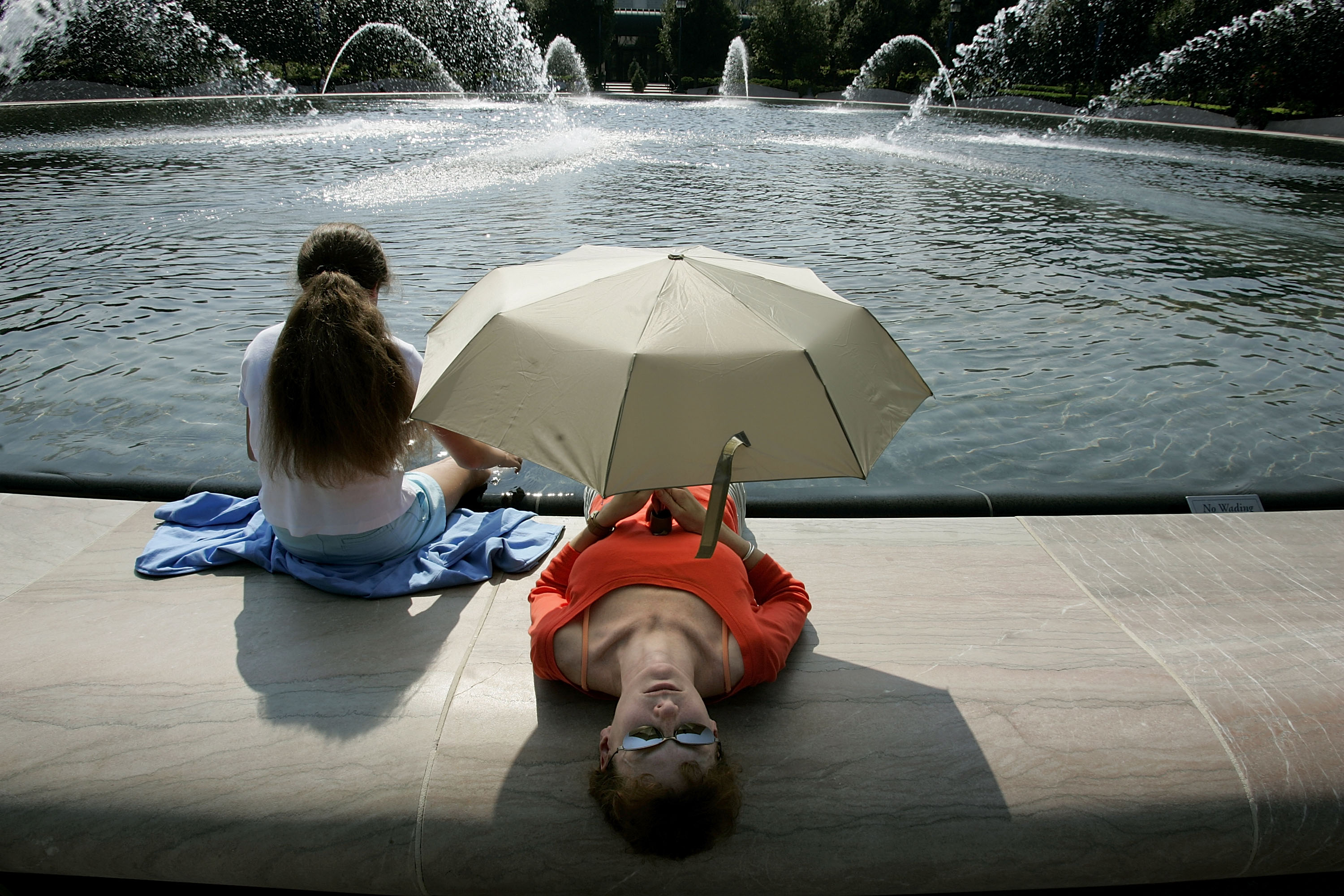
A mother and daughter take shade under an umbrella by a fountain during extreme heat in Washington, D.C., on July 26, 2005 | Source: Getty Images
What the Public Should Do
For areas under an Extreme Heat Warning, the NWS advises immediate action to avoid heat-related illness. People are urged to stay indoors as much as possible, preferably in air-conditioned buildings. Those who must be outside should limit activity to early morning or evening hours, and wear lightweight, loose-fitting clothing.
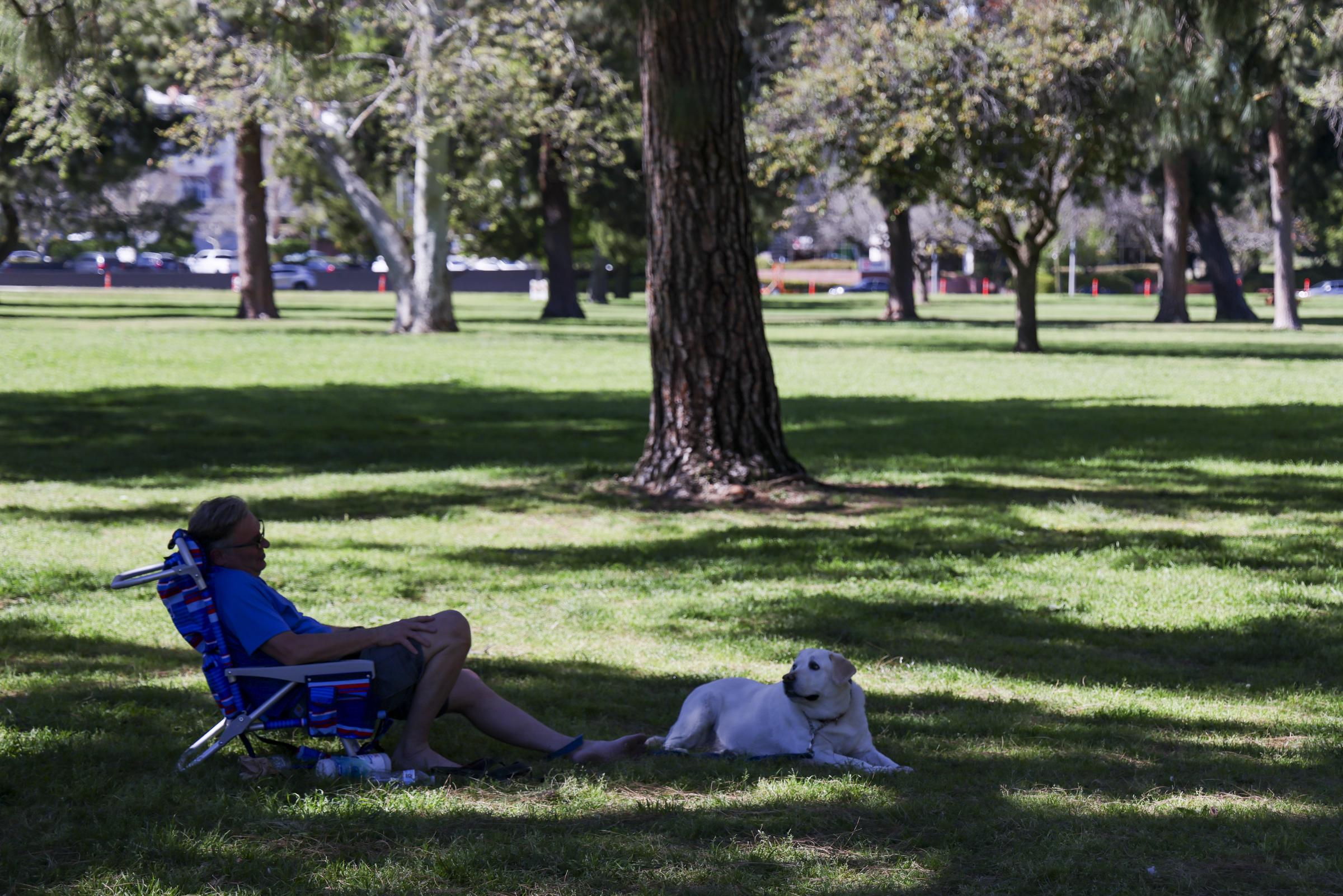
A man relaxes in the shade with his dog on a hot afternoon at Warner Center Park in Woodland Hills, California, on March 24, 2025 | Source: Getty Images
It is essential to stay hydrated, avoid alcohol and caffeine, and take frequent breaks in the shade or indoors. The warnings also advise checking on elderly individuals, children, and those without adequate cooling and stress that children and pets should never be left in vehicles, even briefly, due to the rapid rise of temperatures inside cars.
The risk of heat exhaustion or heat stroke is highest during the afternoon and early evening when temperatures and humidity peak.
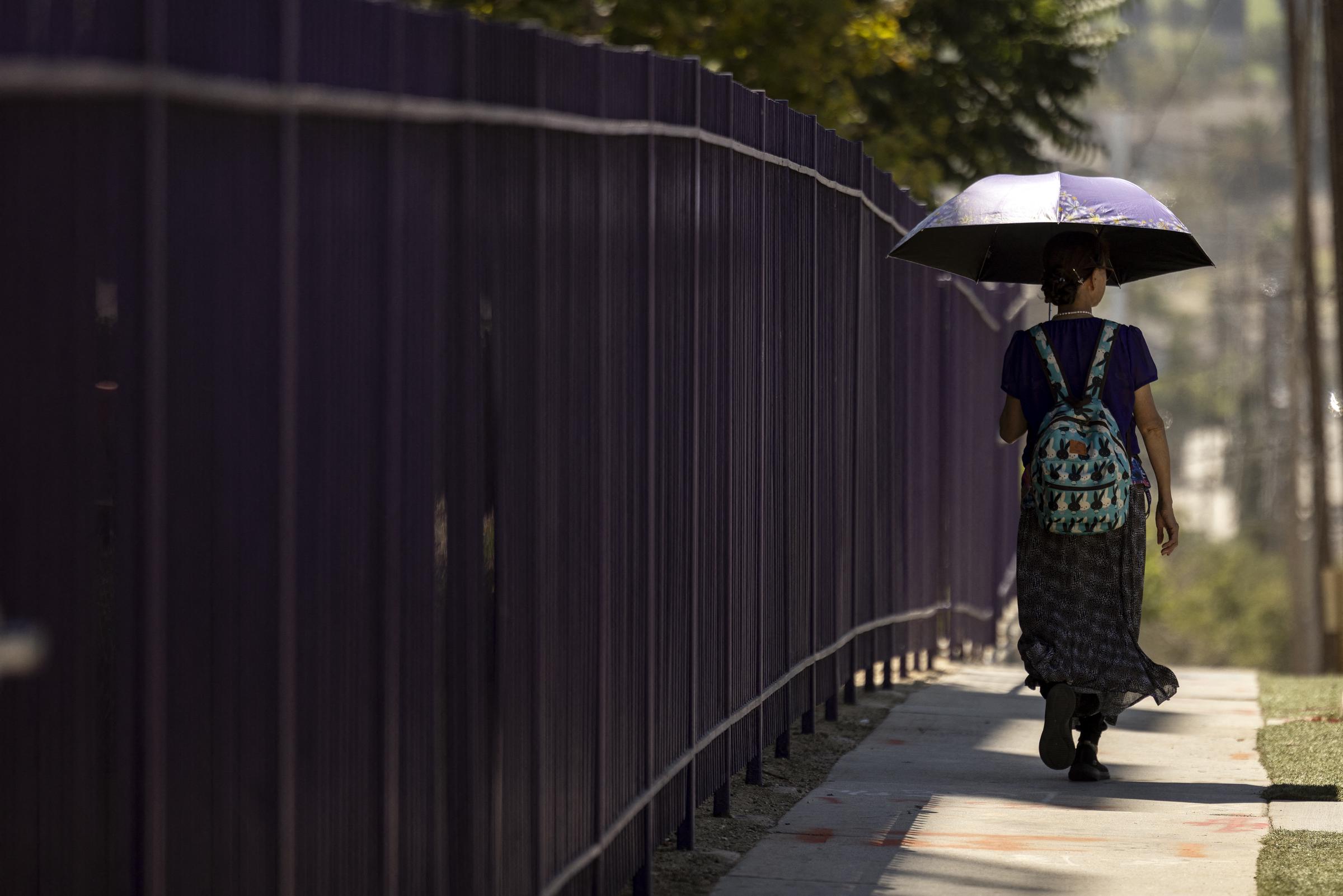
A woman walks under an umbrella for shade as extreme heat scorches Los Angeles, California, on September 4, 2024 | Source: Getty Images
For areas under an Extreme Heat Watch, the guidance focuses on early preparation. The NWS encourages residents to monitor forecasts, review safety plans, and make sure they have access to cooling options and sufficient water in case a warning is issued.
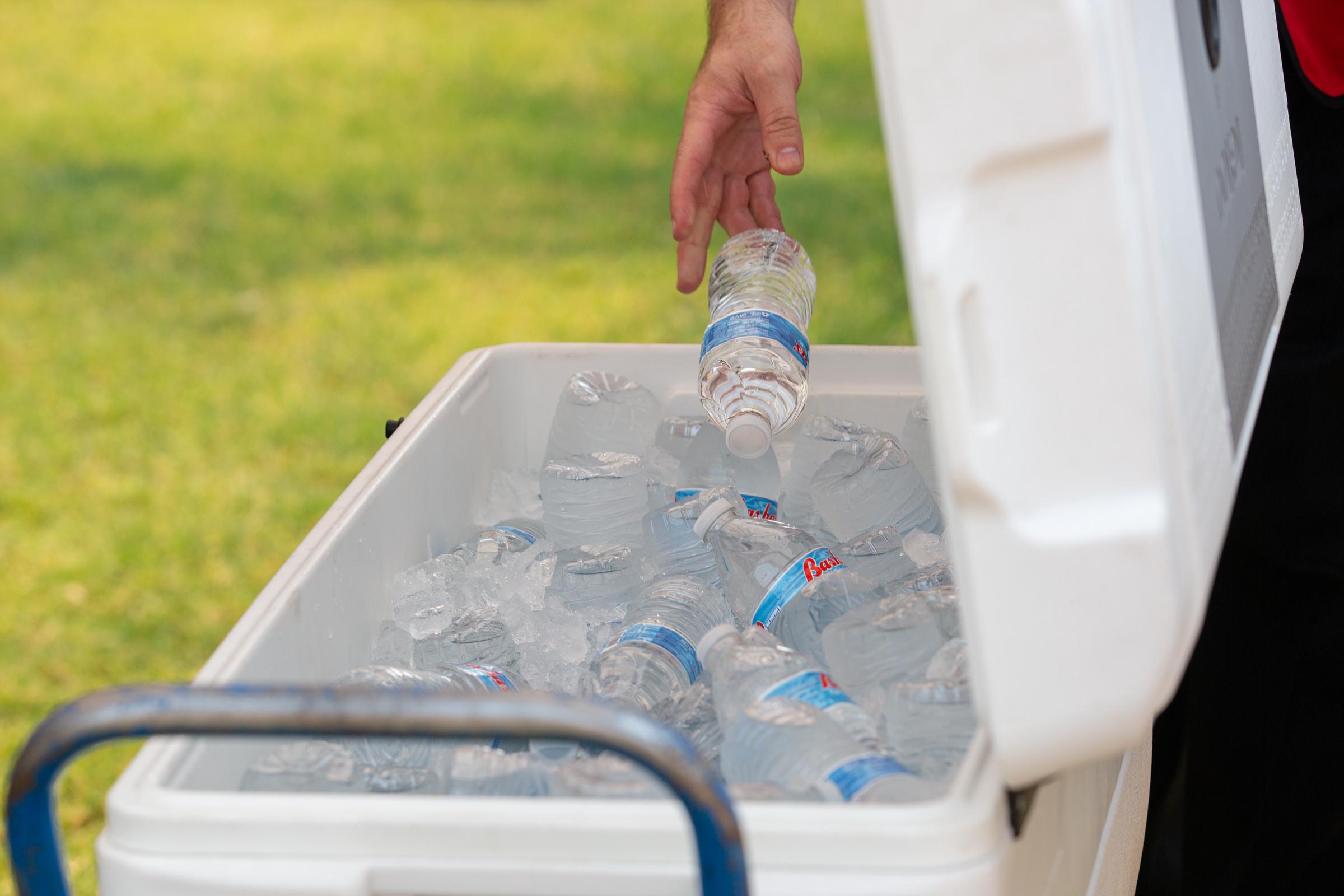
A person picks up a bottle of water from a cooler at a heat relief station in Phoenix, Arizona, on June 15, 2021 | Source: Getty Images
People are advised to begin limiting strenuous outdoor activities and to ensure at-risk groups, including older adults and individuals without air conditioning, are prepared for potentially dangerous heat.
The watch bulletins also suggest rescheduling outdoor events, checking on neighbors, and preparing for potential power or cooling system strain if extreme conditions develop.
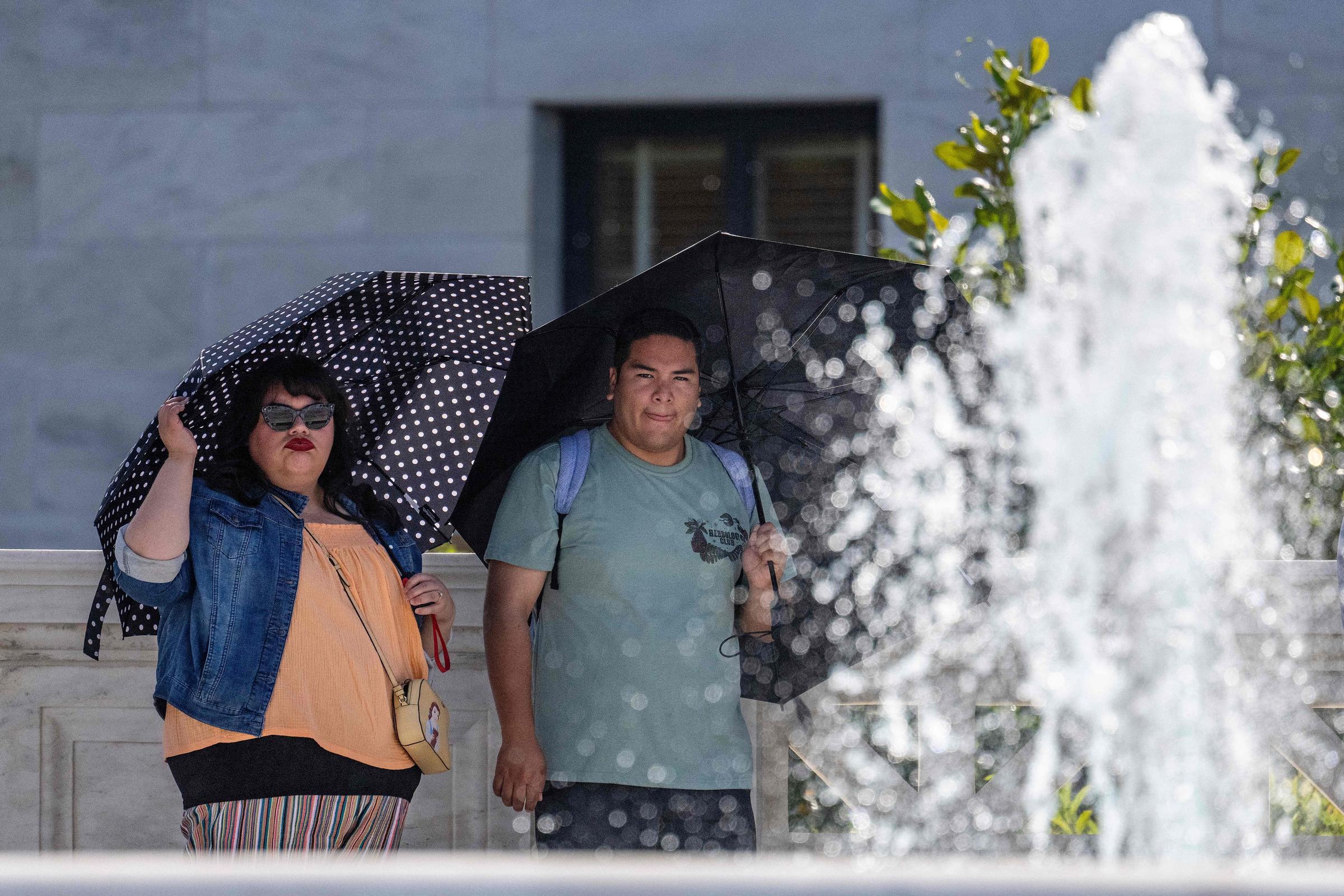
Tourists shield themselves with umbrellas near a fountain in Washington, D.C., as a heatwave settles over the area on June 26, 2023 | Source: Getty Images
These precautions are particularly urgent as the U.S. continues to face growing heat-related dangers.
According to a report published in the Journal of the American Medical Association in August 2024, more people in the U.S. died from heat in 2023 than in any other year on record, with more than 2,300 deaths attributed to extreme temperatures.
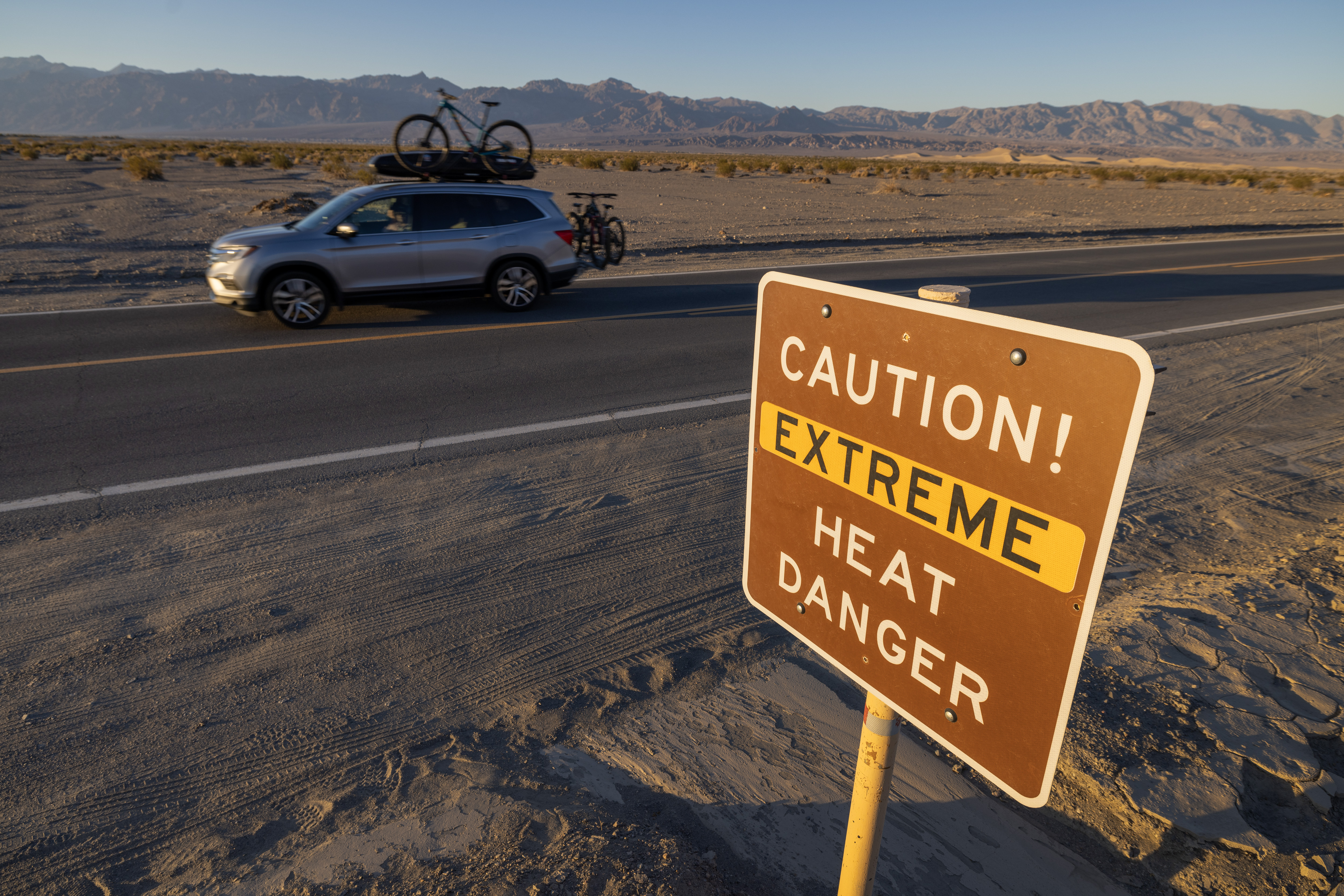
A vehicle drives past a warning sign for extreme heat danger in Death Valley National Park, California, on July 15, 2023 | Source: Getty Images
This record toll occurred during what scientists confirmed as one of the hottest years ever recorded on Earth. Health officials and meteorologists warn that such conditions are no longer rare, making early preparedness and public awareness more critical than ever.
